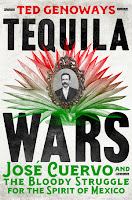The Situation: As a grown man, Steven Mills finds himself separated from his wife, but also on a strange and somewhat sudden trip to look for his father, whom he has not seen since he was 12 years old. While looking for him, Steven also goes back in his memories to 1984, the year his father disappeared. It is also the year his father was denied tenure at St. Agnes, an event that, on the surface, seemed to be the catalyst for his father's leaving. But looking back, Steven will remember the parties his parents would throw around the pool in their backyard; some of the mysterious guests; his father's increasingly erratic behavior; the rumors; and the often persistent sense that something was about to go very very wrong.
The Problem: While Steven continues to remember the past, he is able to compare his memories with what he learns from the people he is able to interview, people who knew and worked with his father. Many of his father's associates are honest, but guarded, often willing to say just enough for Steven to have more questions instead of less. Even family members are not willing to reveal all of what they know, even though Steven is now an adult and no longer a kid. But he stays determined in searching for his father, or at least in finding out what happened to him, though the information may be unpleasant. And as he continues to search, and remember, it becomes clear that his father was complicated, as is what happened to him.
Genre, Themes, History: This is a work of fiction set both in 1984, and in present-day California. With Steven as the first-person narrator, the reader is given a first-hand account of late night pool parties that eventually became a source of anxiety and tension for Steven and his mother. As his father began to unravel, so did his relationship with Steven's mother, something that was made more complicated by the near-constant presence of one of the party guests. It is tempting to point to his father's issues at work as the main problem, but Steven must confront all of the factors, which includes mental health issues, and be honest about how the experience has shaped his own life.
My Verdict: With more focus on characters and relationships, this book is a slow burn. And while things are certainly happening, the scenes and events are given ample time to breathe, with every line of dialogue, every glance, every action, and every decision seeming like it was carefully considered. The book may be less than 300 pages, but within it, the main character fully examines the last few months he was in contact with his father, while attempting to track him down in the present. It is a complex and intriguing and powerful narrative about a young man growing up with a parent who is going through something he does not quite understand, but the events will most certainly shape the rest of his life.
Favorite Moment: Near the end of the book, Steven makes a declaration to one of his father's friends about the music he likes that is so striking and moving, but also sad, considering his experiences, and the story he had been telling up to that point. It is hard to explain without spoilers, but Steven's statement left me stunned.
Favorite Character: Steven's mother is not perfect, but she did her best, considering the circumstances.
Recommended Reading: I recommend Kazuo Ishiguro's The Remains of the Day, if only due to the reflective nature of both novels as the main characters look back and consider their relationship with someone close to them.


